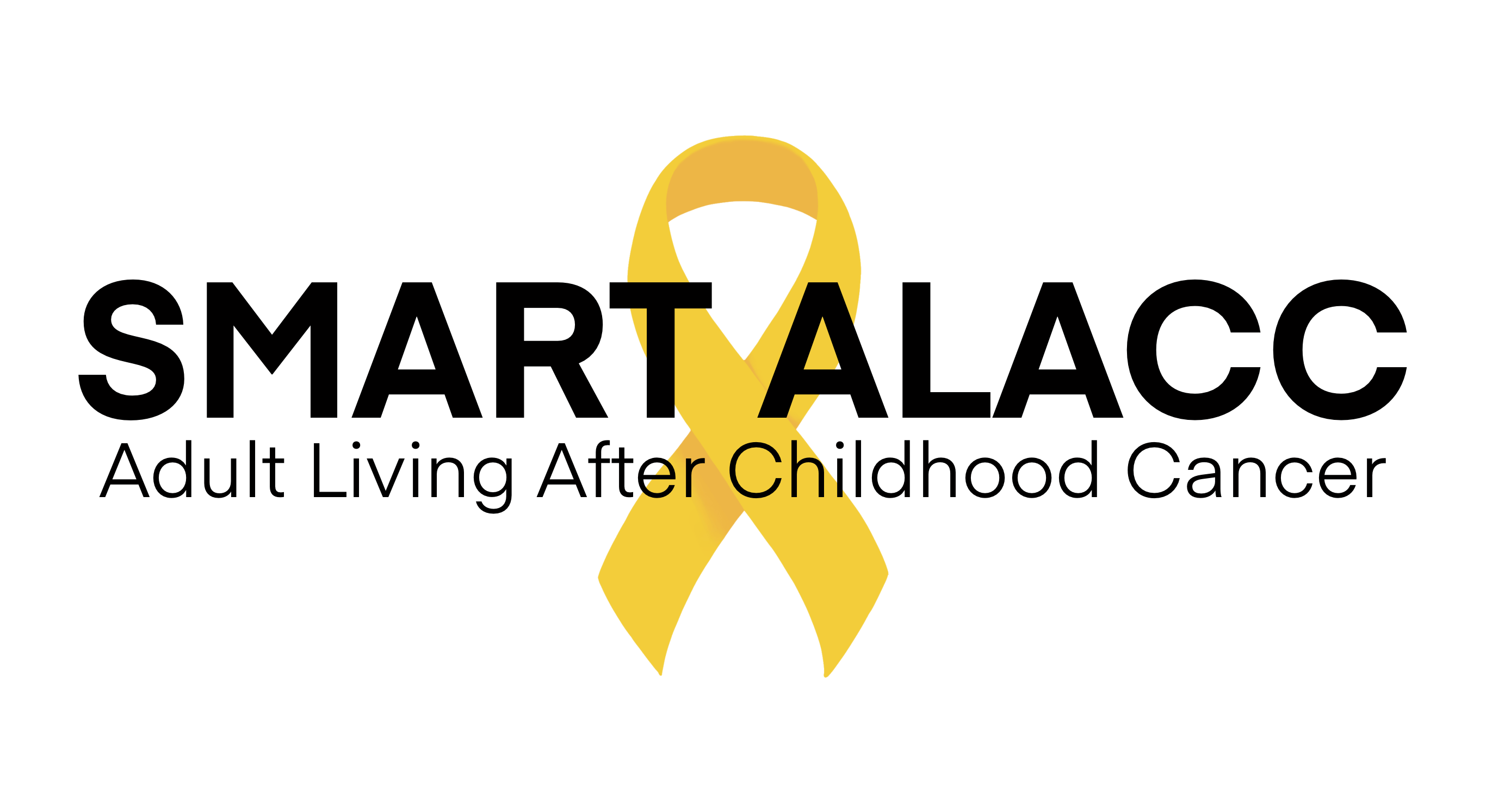
Smart Alacc Care Plan
Survivor Summary
As a survivor, it is important that you keep a treatment summary and a copy of your care plan. You may want to create a file that also includes your healthcare provider’s information and current medications (Visit www.oncolink.org/oncopilot for forms you can use to organize this material). While some survivors continue to see an oncologist or specialized survivorship provider, many return to a primary care provider or internist for routine care, many of whom are uncertain how to care for you. Developing the care plan can help you and your medical team understand what issues to look for, and how to handle them.
The list below can be used to track the recommended follow up care based on your treatments. You should use these as a guide to your cancer follow up care and discuss further with your physician.
You have
You received the following treatments for Retinoblastoma
- Removal of the Eye (Ennucleation)
- Carboplatin (Paraplatin®)
- Etoposide (VePesid®, VP-16)
- Melphalan given into the eye (Intravitreal)
- Vincristine (Oncovin®, VCR)
- Radiation to the Eye
- Proton-based radiation
Risks Related to Surgery
Removal of the Eye (Ennucleation)
Key Takeaways
- After surgical removal of one eye, you should be seen yearly by an eye doctor to ensure your prosthesis is fitting well and that you have no other vision concerns.
Risks Related to Medications
Peripheral Neuropathy
Key Takeaways
- Peripheral neuropathy can be a long-lasting side effect that can require physical therapy, changes in your daily life for safety and managing pain with medication.
Development of Kidney Problems
Key Takeaways
- Have blood pressure checked annually during physical exam
- Have electrolytes (blood chemistries) checked with physical exam.
Hearing Changes or Loss
Key Takeaways
- Report the following symptoms to your healthcare provider, and request an audiogram and consult with audiologist:
- Hearing loss
- Trouble hearing the TV, or need for increased TV volume
- Trouble hearing others in meetings or at large gatherings
- Ringing in your ears
- Dizziness/spinning and/or loss of balance
Elevated Cholesterol Levels
Key Takeaways
- Have cholesterol checked after completing therapy and annually thereafter.
Risk of Developing Osteoporosis
Key Takeaways
- You should avoid smoking, caffeine, and excessive alcohol intake.
- Perform weight bearing and strength training exercise 2-3 times per week.
- Calcium intake of 1000-1200mg per day plus Vitamin D 800iu to 1000iu per day (ideally from food sources, and supplements when your diet is not sufficient).
- Consider screening for osteoporosis with DEXA scan.
Raynaud's Phenomenon
Key Takeaways
- Avoid smoking and medications that constrict blood vessels.
- Protect affected areas from cold exposure.
- Have your blood pressure checked every year.
Learning Differences
Key Takeaways
- Let your healthcare team know if you have trouble with short term memory, multi-tasking, new learning, reading comprehension, working with numbers or a decrease in concentration ability that is affecting your day to day life.
Understanding New Research and Therapies
Key Takeaways
- Many cancer treatments today have not been available long enough to determine what effects they may cause in years after treatment.
- Always let your healthcare team know if you notice any new or worsening symptoms. Remember, you know your body best.
- Periodically look for new information about your treatment and talk to your healthcare team to see if they have anything new to report.
Risk of Developing a Secondary Cancer
Key Takeaways
- There is a small risk of developing leukemia, myelodysplastic syndrome, lymphoma or other cancer years after your treatment is completed.
- The risk is higher in the first 10 years after your treatment.
- Report the following symptoms to your healthcare provider promptly:
- feeling more tired or weaker than usual
- looking pale
- shortness of breath
- loss of appetite
- weight loss
- chills, fevers, night sweats
- painless swelling of a lymph node
- easy bruising, nose bleeds, or bleeding from the gums
- pain in your bones
- Consider having a complete blood count with differential checked by your healthcare provider if you experience any of the above symptoms.
Fertility Concerns for Female Survivors
Key Takeaways
- Survivors wishing to become pregnant should consider consulting with a fertility specialist familiar with cancer survivors.
- All women should use protection when sexually active if pregnancy is not desired, and to protect against sexually transmitted infections.
Eye Health
Key Takeaways
- Survivors who were treated with radiation to the brain or eyes should have an eye exam every year, or more frequently if symptoms are troublesome.
Maintaining Healthy Skin
Key Takeaways
- You should use sunscreen anytime you are outdoors.
- You should see a wound care specialist or surgeon if you have any skin wound or ulcer that does not heal.
A Note on Fatigue
Key Takeaways
- After making sure that fatigue is not being caused by another problem, find ways to best cope and manage the fatigue. Regular exercise, acceptance, and reprioritizing will help.
- Alert your healthcare provider if fatigue is worsening or a new symptom.
